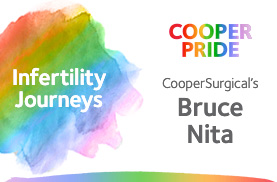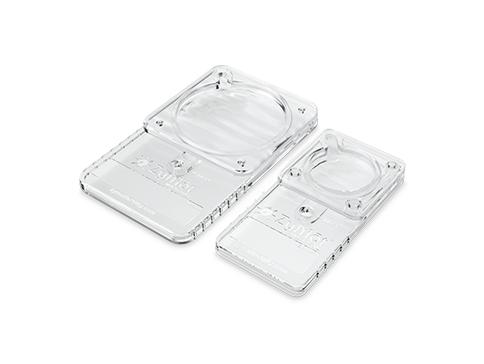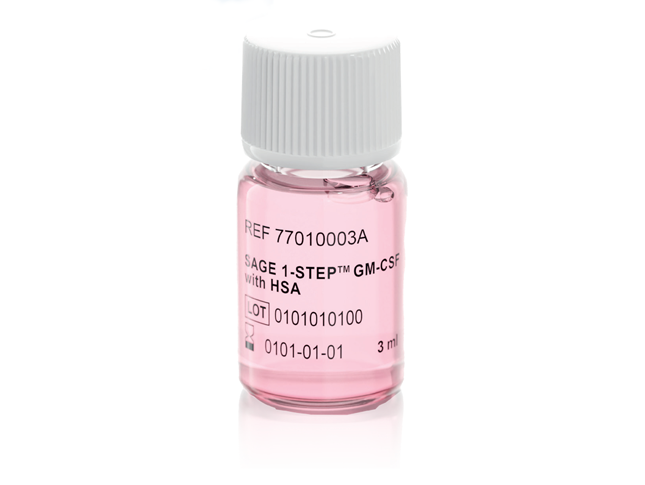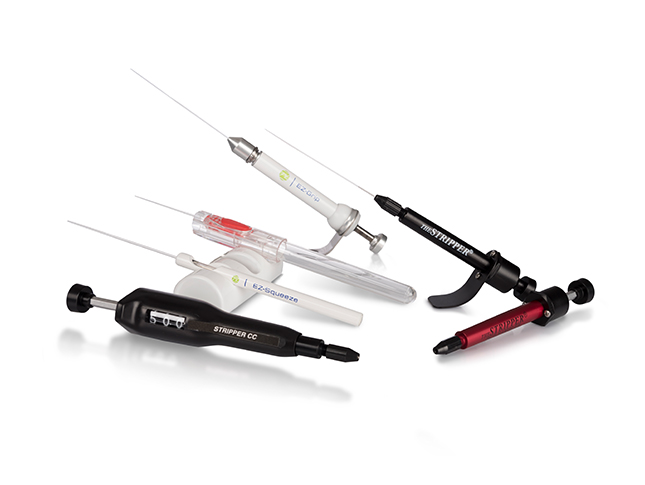
March is Endometriosis Awareness Month, but for those suffering from this challenging disease, the awareness of the impact of endometriosis lasts a lifetime, affecting one’s overall health as well as their fertility.
If you’re not an endo-warrior yourself, you may not know that endometriosis is a disease where endometriotic tissue exists throughout the body, causing inflammation, adhesions, pain, organ dysfunction, and last but not least, infertility. Endometriosis impacts 5 million patients in the United States alone, though, despite its prevalence, it can sometimes take up to ten years for a patient to be diagnosed. Endometriosis can be found not only on the reproductive organs but throughout the pelvis and even in extrapelvic sites such as the lungs.
Up to 50% of women who have endometriosis may experience infertility, making this condition a must-know for all those trying to conceive. It is estimated that 20-25% of patients who have endometriosis may even be asymptomatic but still, struggle with infertility. There have been studies that suggest that some patients who have unexplained infertility may, in fact, have endometriosis, which can only be found during diagnostic laparoscopy.
Endometriosis can cause chronic fatigue, pelvic pain, painful intercourse, constipation and/or diarrhea, bladder issues, and leg and back pain. It is a serious condition that impacts the physical, emotional, and social well-being of those afflicted. Often the symptoms a patient experiences can correlate with where the disease is present; painful bowel movements can indicate the presence on endometriotic tissue on the bowels, and frequent urination can indicate the disease impacting the bladder or ureters.
For people who struggle with both endometriosis and infertility, the expected physical and financial burden is magnified, and can lead those trying to navigate a path towards having a family to despair. Knowing how to be there for a loved one with these conditions can be tricky, and often friends and family are at a loss when trying to support someone grappling with these diseases. Below are a few tips on how you can help.
Don’t give advice unless you are an endometriosis expert.
Sometimes when we try and share what we believe are encouraging anecdotes to those who are going through a hard time, we unintentionally end up hurting them. A statement such as, “My cousin had endometriosis and got pregnant and now she is better,” is not a beacon of hope for someone suffering from endometriosis and infertility. First of all, for many endometriosis patients, getting pregnant can be incredibly difficult, so hearing that kind of comment can often feel as helpful as hearing, “Capturing a unicorn may solve all of your issues.”
Secondly, endometriosis patients are often in need of critical care, with disease implicating many organs. Sharing that “My Aunt Susan had a hysterectomy and it solved all of her issues,” is also not helpful. While a hysterectomy can help with adenomyosis pain, neither pregnancy nor a hysterectomy is a cure or treatment for endometriosis, and sharing these anecdotes perpetuates myths that are ultimately harmful to the patient community. Also, while diet, exercise, essential oils, acupuncture, and other multidisciplinary care can help with endometriosis-related inflammation, insisting these treatments will be the ‘miracle cure’ is not helpful.
Maximizing support without minimizing the experience of your loved one is key to being a good ally.
Supporting a loved one with endometriosis means being flexible and understanding, even when it is hard to fathom what they may be going through. Endometriosis is unpredictable; one day your loved one may feel as if they could finish a marathon, and yet the next week be incapable of going out to dinner. If you find the unreliability of your loved one frustrating, just imagine how it feels for them to wake up every day not being able to rely on their own body. Don’t take it personally. Sometimes those struggling with endometriosis make plans with the hope of making it, only to not feel up for it when the engagement arrives. Don’t make your loved one feel bad for putting their health first. Instead, offer to be flexible with your plans. Assure your loved one that the friendship you share is unconditional. Simple texts that say, “Here for you,” or “You are loved” are an unobtrusive way to show support.
An educated ally is the best kind of ally.
Another way to show your loved one that you care is to learn more about the impact of endometriosis and infertility; there are many valuable resources online that can help you understand more of what they are up against. You can also help educate mutual friends and family and stand up for your loved one if they get complaints about having to miss a social gathering or holiday.
How a person with endometriosis looks, does not indicate how they feel.
Endometriosis is often called an invisible disease, as those who suffer can appear perfectly healthy. Remember that people with endometriosis are often in a state of crisis, especially if one of the symptoms they experience is infertility. At any point, your loved one may be feeling physically unwell, while also grieving the loss of quality of life, or control over their family building. Be mindful of these struggles, and try and be gentle with those around you who may be battling these illnesses.
Endometriosis and infertility can be isolating for those struggling, but family and friends who show love and care can make a world of difference to those in pain. For further resources about endometriosis check out:










